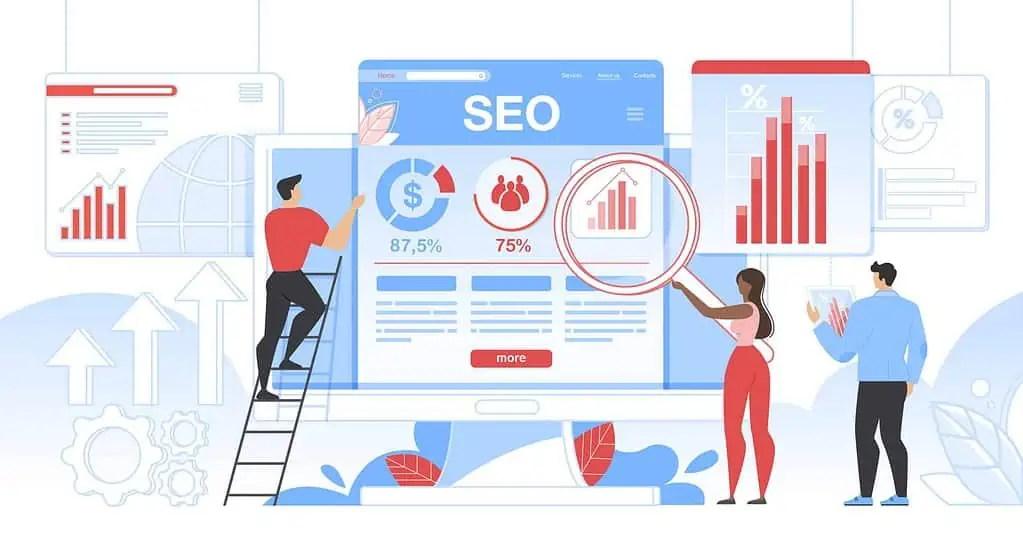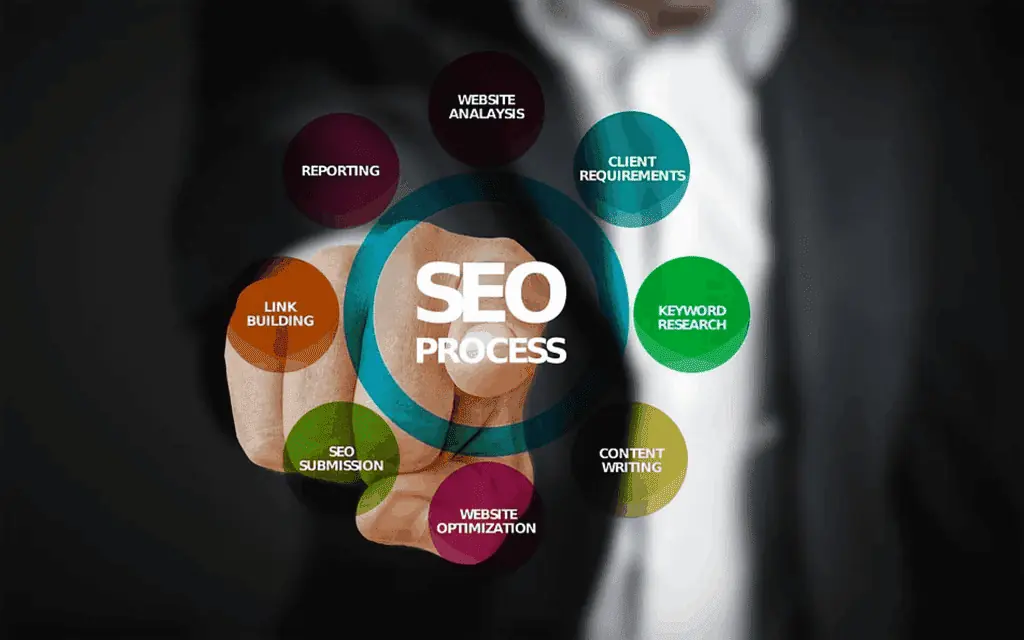In today’s digital age, Search Engine Optimization (SEO) is essential for businesses looking to increase their online visibility and attract potential customers. Understanding SEO optimization can be a daunting task, but the benefits of improving your website’s ranking on search engines are undeniable. In this blog post, we will explore tips and tricks to help you maximize your SEO optimization process and rank better in organic search.
Contents
Understanding SEO Optimization
SEO optimization is the process of improving your website’s visibility and ranking on search engines like Google. This involves strategic use of keywords, creation of quality content, and optimization of page titles and meta descriptions. An effective SEO strategy can help drive organic traffic to your website, resulting in increased brand awareness and sales.
To maximize your SEO optimization process, it’s important to constantly review and update your content with relevant keywords while also ensuring that the user experience remains a top priority. It’s essential to conduct regular audits of your website structure, including internal links and site speed optimizations. By continuously optimizing for both search engines and users alike, you can ultimately improve your overall rankings on SERPs (search engine results pages) over time.
What is SEO Optimization?
SEO optimization refers to the practice of optimizing a website’s content and structure to improve its visibility in search results. It is an essential aspect of digital marketing that aims at increasing organic traffic, improving user experience, and ultimately, boosting conversions.
SEO optimization is crucial for improving website visibility and boosting conversions through on-page and off-page techniques such as keyword research, meta descriptions, title tags, header tags and backlinks.
On-page optimization techniques involve optimising individual web pages to rank higher and earn more relevant traffic from search engines through keyword research, meta descriptions, title tags, header tags, etc. While off-page optimization focuses on methods outside your website that can impact your ranking such as backlinks or link-building strategies. Common SEO terms such as keywords help target specific audiences while backlinks create credibility for your site among search engines. Understanding these concepts will help you build a strong foundation for successful SEO practices in the long run.
Why is SEO Optimization Important?
Maximizing website visibility is crucial in today’s digital age, where online competition is fierce. SEO optimization allows for higher search engine rankings and increased organic traffic to your web pages, which can lead to more conversions and revenue. By optimizing your website content with relevant keywords and staying up-to-date with changing search algorithms, you can establish credibility for your brand and stay ahead of the competition.
SEO optimization is not only about achieving higher page rankings; it’s also about creating high-quality content that resonates with both users and search engines alike. By focusing on user experience through well-written, informative content that addresses their needs and concerns, you can build trust with potential customers while improving your website’s ranking signals.
There is more to ranking well on Google than just doing some link building and changing some meta tags.
Ultimately, investing time in a comprehensive SEO strategy will yield long-term benefits for your business by maximizing visibility online, establishing brand credibility through higher search engine rankings and keeping up-to-date on changes within the industry.
Maximizing Your SEO Optimization Process
To maximize your SEO optimization process, you need to focus on creating high-quality content that is both informative and engaging. Your content should be optimized with relevant keywords and include meta descriptions, title tags, and headers that make it easy for search engines to understand the purpose of the page.
Another important aspect of maximizing your SEO optimization process is building high-quality backlinks from authoritative websites in your industry. This can help improve your website’s domain authority and increase its visibility in search engine results pages (SERPs). Utilizing social media platforms can also be beneficial for improving SEO by increasing brand awareness, driving traffic to your website, and providing opportunities for link-building.
Conducting Keyword Research
Keyword research is an essential part of any successful SEO optimization strategy. It allows you to identify the most relevant and profitable keywords for your website, which can help increase your traffic and drive conversions. To conduct effective keyword research, consider using keyword research tools such as Google Keyword Planner or SEMrush. These tools can help you identify high-volume keywords that are relevant to your business.
In addition to focusing on high-volume keywords, it’s also important to pay attention to long-tail keywords, which are longer and more specific phrases that people use when searching for something online. Long-tail keywords may have lower search volumes than broader terms but they tend to be less competitive, so they can be easier to rank for in search engines. Analyzing competitor keywords is another crucial step in conducting keyword research. By analyzing what your competitors are ranking for, you can gain insights into their content strategy and find opportunities where you might be able to outrank them.
Bullet list:
- Use keyword research tools like Google Keyword Planner or SEMrush
- Focus on both high-volume and long-tail keywords
- Analyze competitor’s targeted keywords
Creating High-Quality Content
Crafting engaging headlines is crucial for attracting readers to your content. A great headline captures the reader’s attention and entices them to click through to read more. Incorporating target keywords naturally within content is also important for SEO optimization, but it should never come at the expense of readability or value. Ensuring that your content provides valuable and informative insights for readers will not only increase engagement on your site, but it can also improve search engine rankings by demonstrating expertise in a particular subject matter.
To create high-quality content that resonates with readers while still providing SEO benefits requires a balance between keyword research and crafting thoughtful, insightful posts. By incorporating targeted keywords throughout each post in an organic way, you can boost visibility without sacrificing quality.
Additionally, focusing on creating genuinely useful information rather than just using keywords as filler will help keep your audience engaged with what you have to say – which translates into better results across the board when it comes time to track conversions or other metrics related specifically back towards optimizing efforts around driving traffic through organic channels like search engines!
Optimizing On-Page Elements
Optimizing meta title and description tags is crucial for improving your website’s search engine rankings. Make sure to include relevant keywords in the title tag while keeping it concise and accurate. The description tag should also be optimized with relevant keywords, providing a clear summary of what content can be expected on the page.
Including header tags such as H1, H2, and H3 in your content not only makes it easier to read but also helps search engines understand the hierarchy of information on your page. Use these tags appropriately and insert relevant keywords within them to increase visibility.
Improving website loading speed is another essential factor in SEO optimization. A slow-loading site will negatively impact user experience, resulting in decreased traffic and higher bounce rates. Optimize images, reduce HTTP requests, minify CSS/JS files – all are ways that could help improve website speed performance significantly.
Building High-Quality Backlinks
Gaining backlinks from high-authority websites within your industry/niche is crucial for improving your website’s SEO. Not only do these links signal to search engines that your content is valuable, but they also drive traffic from reputable sources. Including internal links throughout website pages/content can also help boost SEO by guiding visitors to relevant information and increasing the time spent on your site. It’s important to diversify the anchor text used for backlinking purposes, as this helps avoid over-optimization and ensures a natural link profile that looks credible to both users and search engines.
By building high-quality backlinks through various tactics, you can improve the visibility of your website in search engine results pages (SERPs) and ultimately increase organic traffic. Focusing on obtaining links from authoritative niche-specific sites, utilizing internal linking strategies, and diversifying anchor text are just a few ways you can optimize your backlinking efforts for better SEO performance. Remember that quality always trumps quantity when it comes to building strong backlinks – prioritize relationships with trusted sources rather than simply chasing after any available link opportunity.

Using Social Media for SEO
Social media platforms provide great opportunities for businesses to improve their SEO optimization. By creating engaging content that encourages social sharing, you can increase your online visibility and drive more traffic to your website. Make sure to optimize your social media profiles and posts with relevant keywords, tags, and meta descriptions to rank higher in search engine results pages.
In addition, building a strong social media presence can also help you earn high-quality backlinks as other websites link back to your content. Be consistent in posting regular updates across all channels and engage with your audience through comments, shares, and likes. Utilizing social media analytics tools can also provide valuable insights on the performance of your campaigns so you can adjust strategies accordingly for maximum impact on SEO optimization efforts.
Tips and Tricks for SEO Optimization
Optimizing your website for search engines is crucial to increase your online visibility and attract more traffic. Here are some tips to improve your SEO optimization process:
1. Use relevant keywords throughout the content on your website, including in titles, headings, meta descriptions, and image alt tags.
2. Focus on creating high-quality content that provides value to users and incorporates targeted keywords naturally. Avoid keyword stuffing or duplicating content as it can harm your rankings.
By implementing these simple yet effective tactics into your SEO optimization strategy, you’ll be well on the way towards achieving better search engine rankings and increasing organic traffic to your site.
Staying Up-to-Date with SEO Trends
To maximize your SEO optimization process, it’s important to stay up-to-date with the latest trends. Continuously monitoring search engine algorithm updates ensures that you are aware of any changes that may impact your website’s ranking. Following industry blogs and news sources for insights helps you keep up with best practices and emerging strategies.
Attending conferences and seminars is also crucial for staying on top of the latest SEO trends. This allows you to learn from experts in the field and gain valuable insights into new techniques that can help improve your website’s performance. By keeping a close eye on these three areas, you can ensure that your SEO optimization process remains effective and up-to-date with current trends in the industry.

Avoiding Common SEO Mistakes
Keyword stuffing and overusing keywords in your content can harm your website’s SEO rankings. Instead, use keywords naturally throughout the content without forcing them. A few well-placed keywords will be more effective than packing every sentence with them.
Neglecting website usability and user experience is another common mistake that can negatively impact your SEO efforts. Ensure that your website layout is easy to navigate, load times are fast, and images are optimized for quick loading.
Ignoring mobile optimization and responsive design can also hurt your SEO rankings as an increasing number of people browse the internet on their mobile devices. Make sure that your website is mobile-friendly by using a responsive design approach and optimizing it for faster loading times on smaller screens.
Remember these key points when optimizing for search engines:
- Use keywords naturally within content
- Prioritize usability and user experience
- Optimize for mobile browsing
Using Google Analytics to Measure Success
When it comes to measuring the success of your website’s SEO optimization, Google Analytics is a powerful tool. By tracking your website traffic, bounce rates, and page views, you can gain valuable insights into how visitors are engaging with your site. Analyzing conversion rates and goal completions takes this even further by providing specific metrics to determine whether your efforts are paying off.
Identifying top-performing pages is key in optimizing them further for even better results. With Google Analytics data at hand, you can see which pages are driving the most traffic and conversions. From there, you can fine-tune these pages with targeted keywords or improved calls-to-action to increase their impact on overall SEO performance.
Working with an SEO Expert
When it comes to SEO optimization, working with an expert can greatly improve your chances of success. However, it’s important to find a reputable agency with proven results and collaborate effectively in order to maximize the benefits. Here are some tips for working with an SEO expert:
- Hire a reputable agency with proven results:
- Before choosing an SEO expert to work with, make sure you research their track record and ask for references or case studies.
- Collaborate on keyword research and targeting strategies:
- Work closely with your SEO expert to identify relevant keywords that will help increase traffic and conversions. Regularly review these strategies together.
- Receive regular reports on progress towards goals:
- It’s important that you receive regular updates from your SEO expert so that you can see how your website is progressing towards specific goals such as increased traffic or improved search engine rankings.
By following these tips, you can ensure that working with an SEO expert is a fruitful collaboration rather than one fraught by miscommunication or unclear expectations.
Written by Lars Koudal












